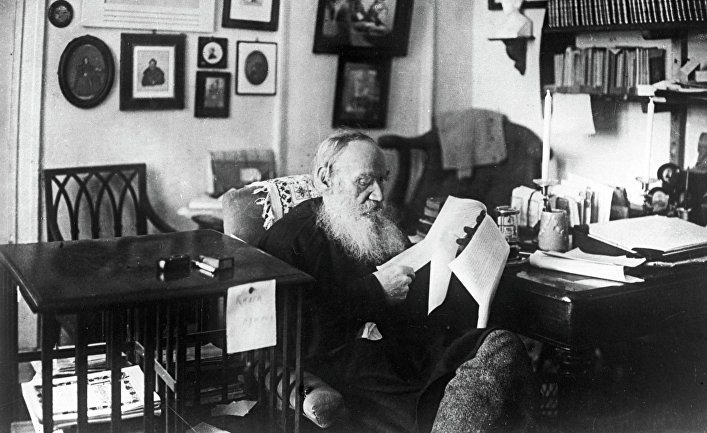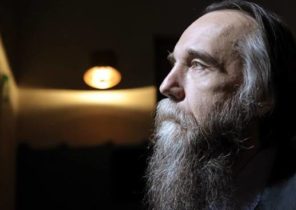
After a spiritual crisis and constant pangs of conscience, Leo Tolstoy was again perceived as a spiritual teacher.
“Can the dead really go on living?” was the title of the pamphlet, which I recently put into the hand of a woman from Jehovah’s Witnesses. The question, of course, rhetorical. Because “the Lord had previously returned to the life of the people”, so why did he not do it again? I almost felt a certain temptation to realize that I shouldn’t fear death, that there is “real hope to be reunited with those you lost.”
And here I sit and start to read the Testaments of Tolstoy on Christianity and all hope disappears. But still.
Ludwig Wittgenstein (Ludwig Wittgenstein) once wrote that this book saved his life. Easily accessible Tolstoy’s ideas about how to understand Christianity, became a direct source of inspiration, when the Austrian philosopher in 1922, he wrote his chief work “Logical-philosophical treatise”.
For 40 years before Tolstoy, who was then 50 years old, in crisis — spiritually confused and full of shame for something that belonged to the rich upper class. He refused royalties for their works and wanted to commit suicide.
But suddenly Tolstoy (a miracle?) found dirty the essence of religion: “I found myself in the same position as the person who was given a bag of stinking dirt, and only after much work and effort understands that this bag is filled with dirt, are priceless pearls.”
And then surprisingly uplifting conclusion:
“All people can be happy, despite any problems their carnal life.” While Darwin and actively developing science, Tolstoy saw the opportunity to be blessed. From 1880 until his death in 1910 he worked on a great religious work in four volumes. “A brief exposition of the gospel” is translated, finally, the compelling Danish.
The genius of literature, Tolstoy was a Christian sage, a moral guide who was able to rescue pearl from stinking mud to Wittgenstein and all others who are looking for something out of date, as, for example, the meaning of it all.
“A brief exposition of the gospel” is a charming book that offers a view of Christianity, stripped of dogma, rituals, all sectarian and institutional, from miracles and unnecessary chatter, cleared the resurrection!
You should not dwell on those facets of literature that have made Tolstoy one of the greatest writers of all time. This book is too idiosyncratic, dogmatic and confident in their field, exactly as it should be. The presentation of Fat of the four Gospels in 12 chapters — earth concentrate, which, in the opinion of the writer, captures the meaning of Christianity. He carefully selects and boldly describes, takes the part of one gospel and compares it with part of another in the collage, which sometimes does not comply with the chronology. It’s tempting, it’s manipulation, but all this is strikingly convincing.
The Church as a bit odd, writes Tolstoy; and Paul, too, is not particularly well understood of Christ. Christ Tolstoy — a philosopher of morality and a reformer of society, and not just divine. When he predicts his own death, he does so not because he receives a revelation, he understands only the language of power in a society that has to judge his teachings.
We, in other words, everyone is a Christ in each of us there is divine, and man can and must acknowledge it. The Russian Orthodox Church, of course, Tolstoy condemned for heretical point of view. The Church represents the dark, than wanted to fight Jesus, says Tolstoy. He was interested in only Christianity which could be applied in life; it’s a logical story of Christianity, which is its own evidence.
The tone of Tolstoy edifying and slightly authoritarian, he begins Chapter very sensible summary says, in the form of a passionate imperative and emphasizes the almost divine regularity in the image, as if Tolstoy, with an emphasis on harmony and internal necessity of language and composition wants to emphasize the clear truth of the teachings. A reasonable person must elect to faith and thus attain liberation. Mercy is usually required, loses, therefore, the importance and is regarded as incorrect completion. Jesus died on the cross not for someone else.
You can feel inspired by Leo Tolstoy — or not feel. “A brief exposition of the gospel” — a radical and very interesting presentation of Christianity, it is interesting as a form of autobiography Tolstoy.
“The only thing worth worry — life will of the Father, and the rest will come by itself,” he writes. And I couldn’t tell whether or not Tolstoy himself and the life that is not limited by time.
But the Kingdom of heaven is something that is here and now. This means that all of a sudden can become very happy.
But it also means that I can’t count on a reunion with those I’ve lost.







